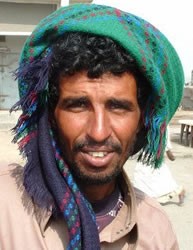Shukria in Sudan

Photo Source:
Copyrighted © 2026
Claudiovidri - Shutterstock All rights reserved. Used with permission |
Send Joshua Project a map of this people group.
|
| People Name: | Shukria |
| Country: | Sudan |
| 10/40 Window: | Yes |
| Population: | 284,000 |
| World Population: | 284,000 |
| Primary Language: | Arabic, Sudanese |
| Primary Religion: | Islam |
| Christian Adherents: | 0.30 % |
| Evangelicals: | 0.05 % |
| Scripture: | New Testament |
| Ministry Resources: | Yes |
| Jesus Film: | Yes |
| Audio Recordings: | Yes |
| People Cluster: | Arab, Sudan |
| Affinity Bloc: | Arab World |
| Progress Level: |
|
Introduction / History
Arabs from the Arabian Peninsula are the original Arabs. Their distinctive culture developed in the Arabian Desert from people who lived either as tribal nomads or town dwellers. From there, migrations began, which led to the spread of the Arab world throughout North Africa. From North Africa the Arabs began to move south into what is now Sudan. There are a number of Arab peoples in Sudan, and one subgroup is the Shukria Arabs, who live in eastern Sudan. Their homeland is bounded by the Blue Nile, Nile and Atbara rivers. Their villages are of two different types: large villages, and the other more popular style, villages strung out along the Nile River in a continuous chain of closely adjacent huts.
One of the smallest groups of Arabs in Sudan, the Shukria compose a very small percentage of Sudan's total population. They speak Sudanese Arabic. Some consider them to be a clan rather than an Arabic subgroup.
What Are Their Lives Like?
Life is centered around the village for most of the Shukria. Large villages in Sudan can have up to 3,000 people; whereas small villages have only a few hundred. Villages have no formal physical structure. Most have only one shop, which supplies necessities such as sugar, coffee beans, spices, and kerosene. Most families live in compounds composed of one or more houses, all of which are enclosed by a wall of mud or thorns. The houses are usually single-storied, flat-roofed structures made of mud brick. Usually, there is only one interior room. Occasionally, homes will have a thatched roof extending out to make a porch. It is thought that some Shukria live in southern Sudan below the juncture of the Blue and White Niles, living in what is known as Sudanese style houses. These are round, one room huts with thatched, cone-shaped roofs. In some areas, the base is made of mud; in others, it is of thatch.
The basis of the Shukria economy is agriculture. The major crops grown include wheat, maize, vegetables and coffee. They keep livestock in small yards to supply daily needs of milk and eggs.
Social life is important to the Shukria. They typically share a daily coffee time by sitting on the floor and drinking coffee. Because wood is expensive and somewhat scarce, they often use animal dung as cooking fuel.
Typically, Arab groups practice endogamy (marriage within a small social circle). However, as tribal intermixture has increased in recent years, village loyalty has replaced tribal loyalty for many. As a result, village endogamy has become the norm. Polygyny (having more than one wife) is rare in Sudan; most Arabs there have only one wife. In the past, marriages were arranged, but, increasingly, individual choice is becoming acceptable. Inheritance is patrilineal (traced through the males). In this system, boys inherit more than girls. Their value of young women is based on their ability to have children and bond families through marriage. Shukria people view children as a family's greatest asset.
What Are Their Beliefs?
Being Muslims, the Shukria follow the teachings of the prophet Mohammed. In order to attain heaven, one must adhere to these teachings, which are revealed in their holy book, the Koran.
The Muslim religion is a religion of works based on five "pillars," or duties. These include affirming that there is no god but Allah, and Mohammed is his prophet; praying five times a day; giving alms to the poor; fasting during the month of Ramadan; and making a pilgrimage to Mecca, if possible.
What Are Their Needs?
Like all people in Sudan, the Shukria suffer from a long lasting war between two selfish factions that have destroyed Sudan's economy and caused millions of displaced persons.
Prayer Points
Pray for the Lord to bring about a just and lasting peace to Sudan.
Ask God to anoint Christian radio broadcasts that will lead many Shakria people to put all their faith in Jesus Christ..
Pray that Jesus will reveal himself as Lord to the Shukria.
Pray that signs and wonders will follow the Shukria believers as they share Christ leading many to understand he is much more than a prophet.
Pray for the Lord to thrust out workers to the Shukria community.